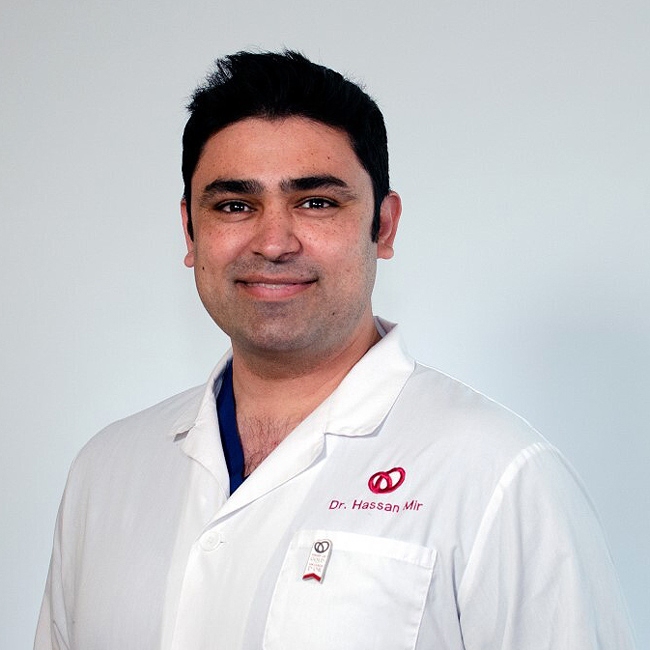A leading voice in the quit-smoking arena worldwide, Andrew Pipe, MD, who was instrumental in the development of the widely adopted Ottawa Model for Smoking Cessation (OMSC) at the University of Ottawa Heart Institute, announced earlier this year his longtime mentee, Hassan Mir, MD, is ready to take over the leadership.
“I am getting close to my fiftieth year of clinical practice,” said Dr. Pipe. “The last thing you want to do is not recognize when it is time for new, insightful, energetic, and enthusiastic younger colleagues to bring their dynamism and drive to take the program to new levels.”
Dr. Mir likened Dr. Pipe – a man who has addressed audiences in over 30 nations, met Michael Jordan, and served as a physician at 12 Olympic Games – to Indiana Jones, the archaeologist and adventurer played by Harrison Ford.

“I can’t put into words how much Dr. Pipe has meant to me and to my career,” he told The Beat. “He recognized and fostered within me the love of smoking cessation and tobacco control early on. He’s the most interesting person I have ever met.”
When Hassan met Andrew
Hassan Mir first met Andrew Pipe while attending a medical conference in Toronto more than a decade ago. Pipe was interested in the research Mir was conducting at the Population Health Research Institute at McMaster University, and he asked him to present it to him personally.

At that time, Pipe recognized there were few trainees doing research on smoking cessation. Impressed by Mir, he invited him to attend the Heart Institute to complete a two-week elective in cardiovascular prevention. During that period, Mir travelled across the region with Pipe in his Smart car – which was amusing given Pipe’s height and stature – and seeing what it meant to do prevention and health policy work on the ground.
"I can’t put into words how much Dr. Pipe has meant to me and to my career. He’s the most interesting person I have ever met."
- Dr. Hassan Mir
“It’s serendipitous that many years later I am taking over the leadership of the OMSC at the Heart Institute,” Mir said. “Andrew Pipe was quite involved in my recruitment and development, along with Dr. Bob Reid and Dr. Thais Coutinho. Andrew has been an endless source of knowledge for me.”
Today, Hassan Mir is recognized for his outstanding clinical, research, and leadership skills at the local, national, and international level. He officially joined the Heart Institute staff in 2020 as a cardiologist in the divisions of cardiology and cardiac prevention and rehabilitation.
Dr. Pipe praised Dr. Mir as an accomplished cardiologist with a substantial interest in smoking cessation and cardiac prevention and in evaluating digital health technologies to improve patient outcomes. He said the program could not be in better hands going forward.
“I am delighted that Dr. Hassan Mir has joined us,” Pipe affirmed. “I am thrilled with the skills and insights he brings. I know the program is going to be in very, very good hands.”
As chair of the OMSC, Mir is now responsible for ensuring the success of the Model, while continuing to innovate, develop, implement, and evaluate both clinical and research programs designed to promote smoking and e-cigarette cessation. It is Mir's goal not to change the foundations of the program, but to build on them.
Mir believes the Ottawa Model can be implemented as a fundamental model of practice in every clinical setting, particularly hospitals, where it can have the biggest impact on readmissions and costs. Doing so will require innovative approaches to “get the message out in publicly available forums.”
The message, he said, is simple: The Ottawa Model for Smoking Cessation is a validated, evidence-based process that combines knowledge translation and organizational change practices to implement smoking cessation treatment and support as part of optimal routine care. It is proven to increase long-term smoking abstinence rates, reduce downstream healthcare use, and reduce premature risk of death related to smoking and nicotine addiction.
State-of-the-art clinical approaches to smoking cessation
This January marks the 15th anniversary of the Ottawa Conference: State-of-the-Art Clinical Approaches to Smoking Cessation, and the event’s return to in-person programming after two years of pandemic restrictions.
“Everybody knows the Ottawa Conference is the primary event for health professionals seeking to gain or enhance knowledge in clinical smoking cessation and nicotine addiction,” said Dr. Hassan Mir. “This year, given that it is the 15th anniversary, it is going to be extra special. We’re going to welcome national and international speakers who are giants in their field.”
The preliminary conference program already includes several household names: There’s David Hammond, PhD, of the School of Public Health at the University of Waterloo, whose research focuses on tobacco control and vaping in the areas of health communications, packaging, and product regulation, as well as cannabis and nutrition policies; Professor Sanjay Agrawal, who is the national specialty adviser for tobacco dependency at National Health Services England, chair of the Royal College of Physicians’ tobacco advisory group, and a physician specializing in respiratory and intensive care medicine; and Graham Warren, MD, PhD, from the Medical University of South Carolina. Dr. Warren works with several local, regional, national, and international organizations to increase access to evidence-based tobacco cessation support for cancer patients.
According to a conference organizer we interviewed for this article, “Vaping and vaping cessation is the ‘hottest’ topic in the smoking cessation world right now, and the one that will draw the most attention in 2023. This includes not only vape use, but the use of vaping for smoking cessation, and vaping cessation, which itself is currently a prominent topic of discussion.”
Drs. Andrew Pipe and Hassan Mir will open the conference with their joint presentation, “Clinical Smoking Cessation in 2023: Contemporary Issues and Contemporary Practice” on January 20.
Never miss a Beat
Want interesting stories like this delivered straight to your inbox as they happen? Subscribe to our mailing list.

